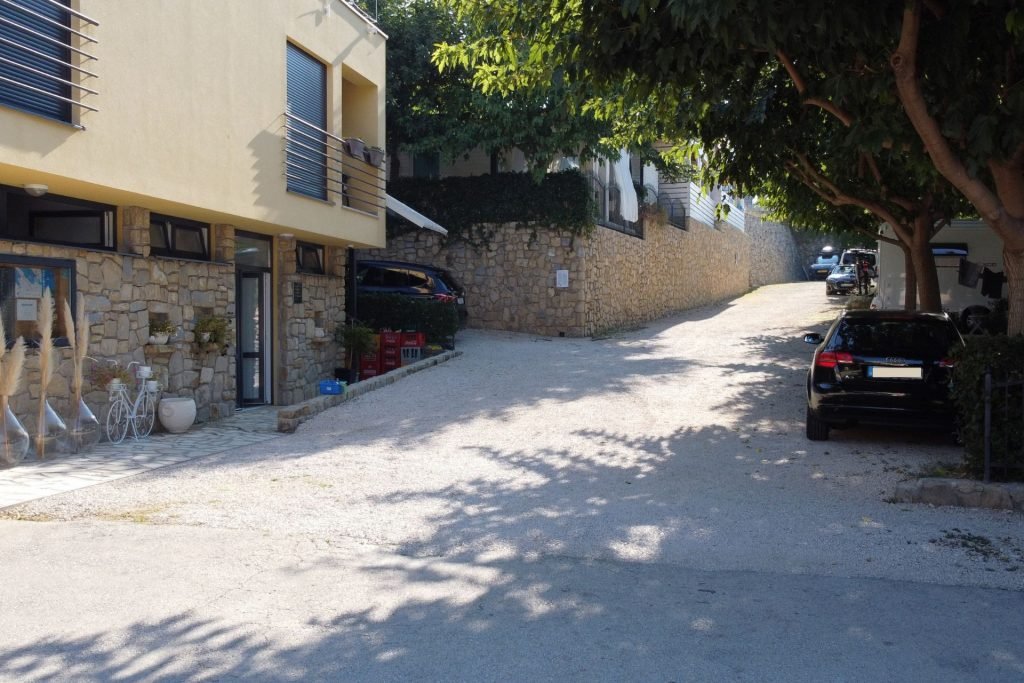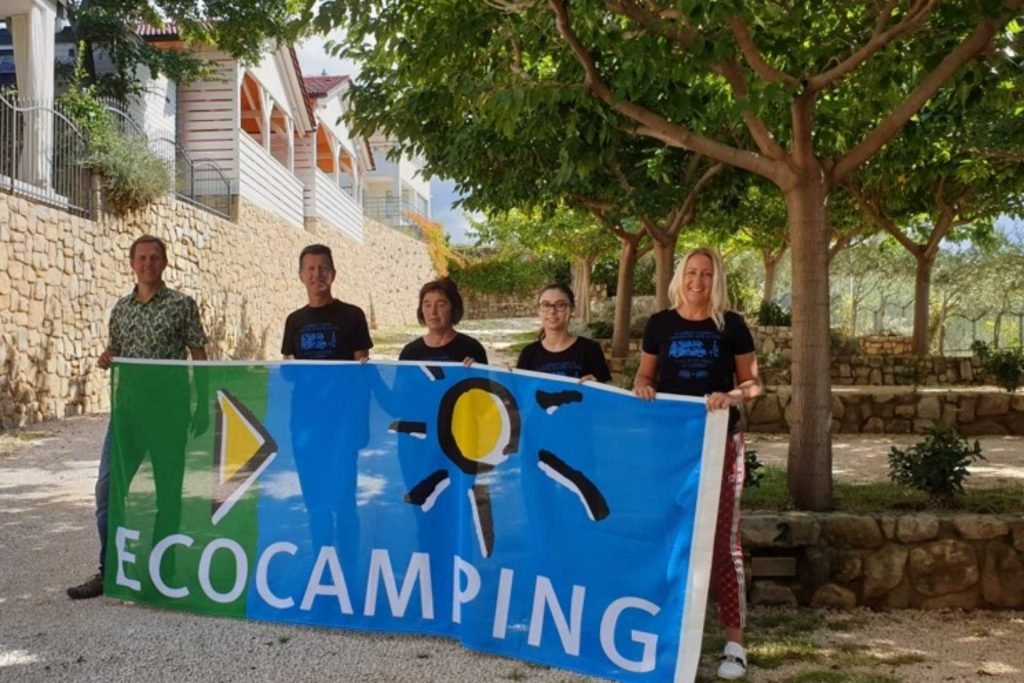As certain European regions, and especially the popular summer destination on the Mediterranean, experience a sharp increase in the number of guests during the hotter months of the year, the strain on the campsites infrastructure and day-to-day operations is quite significant. This can be felt both by small family-run campsites as well as big camping resorts. It is therefore paramount to invest additional strength and knowledge in the sustainable management of these campsites with the final goal to achieve energy neutrality. To be able to present the case in the eyes of a small family-run business, this case study will follow the example of the Odmoree Campsite, located in the Croatian region of Dalmatia, north of the city of Zadar.

The ever-rising demands for campsite owners in the field of ecology and sustainability have been, among others, met by campsite Odmoree which aimed of achieving the following goals: improving of the protection of the environment and nature, safety, and overall quality, rising the awareness for sustainability, enhancing in the campsite organization and management, implementing an eco-friendly management system and above all educate and train the campsite staff. This motivation to adopt to new standards comes both from internal but also external challenges. On the one side, customers and the public in general expects the campsites (as campsites are being viewed as a nature-friendly type of accommodation) to be at the forefront of change while the public sector is also adding to this push towards change by adopting new legislation and providing funds for green investments. On the other side, campsite owners are also conscious of the fact that the increased costs of investments in some green technologies will ultimately, in the long run, lower costs of doing business. But changes can be achieved not only by investments in hardware but also in step-by-step improvements in the day-to-day management of campsites, and especially so if we are talking about small family-owned campsites. One of the biggest challenges is in fact the change in the mindset and gradual opening to new ideas which can also partially be achieved by independent consultations with sector experts as was in this case.

Being a small family-run campsite with a limited “sustainability improvement budget” when compared to bigger camping resorts, taking advantage of co-founded green projects is an excellent opportunity to accelerate the improvement of the way of doing business. This was exactly the case with campsite Odmoree which participated in a project co-funded by the Croatian Ministry of Tourism and led by the Croatian Camping Association. The campsite was the location of an independent site analysis by Ecocamping, a leading, Germany-based, expert in the field of campsite sustainability. The site inspection includes an education and training session with the management and staff, where the main aspects of the training were conveyed and explained. Questions and ideas were collected and integrated into the training. Furthermore, a detailed status assessment through the entire campsite was done, where positive and negative examples are identified and discussed. Areas of possible improvement are also indicated and explained.
Several key aspects are considered as top priority when it comes to the education for sustainability. One is to inform and involve organizations about the prevention of biodiversity loss, climate change and general environmental protection. Another important aspect for protecting the environment is using energy efficiently. This can be achieved through different techniques such as the use motion sensors for the walkways that need to be illuminated at night, another would be to use LED lights. In addition to that, there are many more options when it comes to using energy efficiently. But not only the reduction of energy use is important. The energy source also has a great impact on the environment. Therefore, promoting sustainable and environmentally friendly energy production is also crucial. Furthermore, it is important to keep the air clean and avoid the pollution of soil and water. Waste management must be optimized as well as material cycles. But in general, one of the most important aspects is to design the campsite in accordance with nature and to promote biodiversity. The possibilities here are endless and need to be considered specifically for a certain campsite.

With its detailed site inspection, campsite Odmoree now has the crucial data needed to start small- or large-scale improvements. The collected data is of paramount importance as it eases the operationalization of plans and ideas needed for improving certain aspects of the business, which already is at a quite high level of quality.

Sustainability must be achieved, there is no long-term alternative for it. Given the dynamic surroundings in which campsites do business, with the ever changing political, epidemiological or inflatory realities, complete sustainability, biodiversity, and energy neutrality are a crucial part of the path which will secure a bright future for the campsite sector.



Master of sustainable outdoor hospitality management is a result of Eu founded project CAMPMASTER:
Project title: Development of european curriculum in the field of sustainable camping resort management
Project ID: KA203-E-1423370
Project duration: from 01.10.2020. until 30.09.2022.
